Dos and don’ts for harnessing the power of agricultural biologicals
Biologicals are making their mark on agriculture by harnessing the power of nature to improve yields, prevent disease and ward off pests. We explore four dos and don’ts for this fast-growing sector.
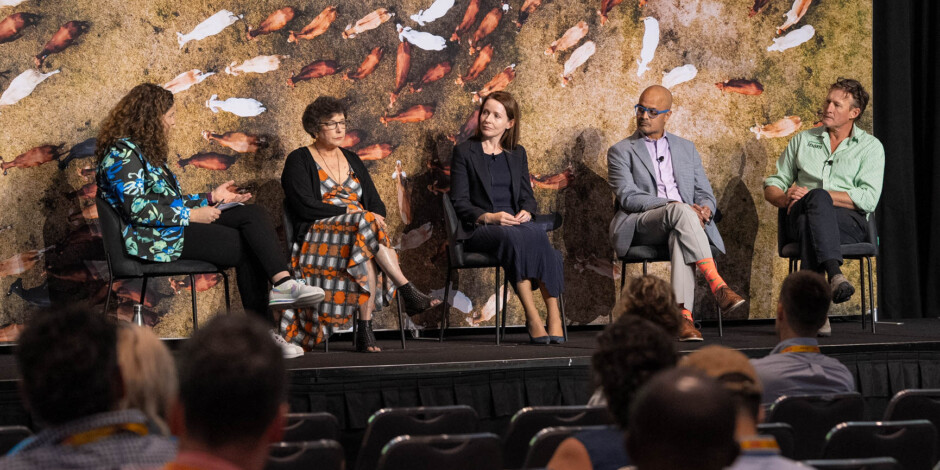
Interest and investment in biological alternatives to chemical-based agricultural products is growing rapidly across the globe.
Currently valued at around $USD 14.7 billion, economic reports forecast the agricultural biologicals market will grow to around $USD 27.9 billion by 2028.
Agricultural biologicals are a diverse group of products derived from living organisms, which are used for crop protection (biopesticides) or production (biostimulants and biofertilisers).
While the industry has attracted plenty of attention when it comes to its benefits such as improving soil health, enhancing crop resilience and reducing environmental impact, it has also battled against scalability issues and resistance from farmers to its widespread adoption.
Dr Pam Marrone, Co-Founder and Executive Chair, Invasive Species Corporation; Nitin Vaish, Business Development – Agriculture, Ginkgo Bioworks; Rebecca Russell, Managing Director and Partner, Boston Consulting Group; Mick Wettenhall, Director, Weemabah Pastoral Co., and Co-founder and Head of Grower Success, Loam Bio, share the future of biologicals highlighting the potential of biologicals – while exploring challenges still to be overcome.
Here’s four dos and don’ts for this fast-growing sector.
1. DO recognise that money talks
Boston Consulting Group Managing Director Rebecca Russell works with businesses, foundations, and governments to support the world’s food supply through sustainable agriculture, resilient supply chains and the availability of healthy food.
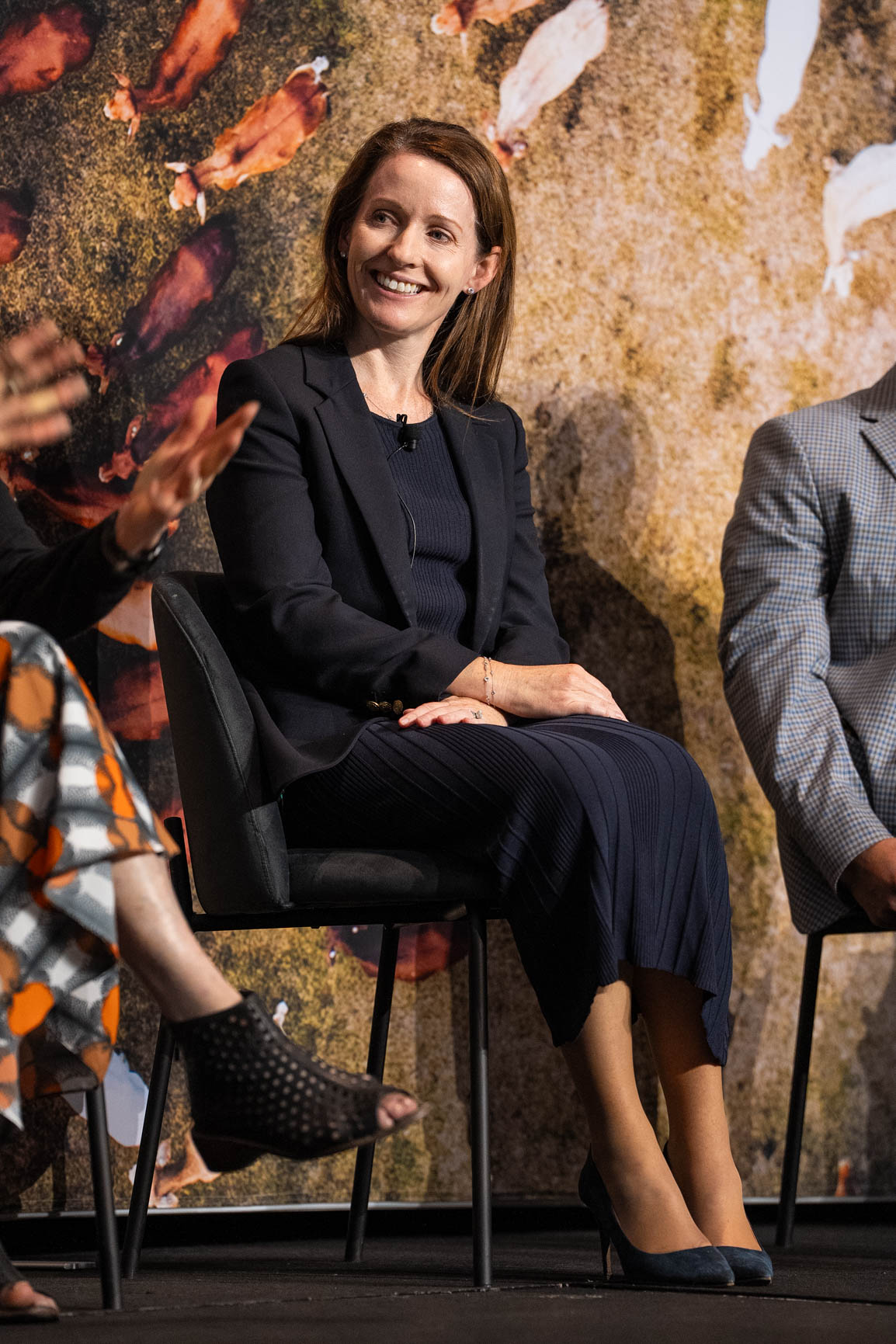
She said that while the benefits of biologicals in the paddock are clear, farmers also need to understand both the short and long-term economics of using them.
“For the first two to three years there’s often an increase in cost and a reduction in yield depending on how you’re deploying the changes to the farming practices,” Rebecca said.
“(But) there’s, on average, a six-year return on investment from adopting sustainable agriculture and biologicals in terms of your farming practices… we typically see around a 20% uplift in profitability at the farm level, which is remarkable.
“It’s crucial that the full value chain take action however, not just farmers.”
Central Western New South Wales farmer Mick Wettenhall is a Co-Founder of Loam Bio, Australia’s fastest growing agritech startup, and Founder of SoilCQuest 2031. He said making the economics of biologicals work was the key to success.
“The ticket to the farmer is his pocketbook at the end of the day. He doesn’t have a lot of room to move in his budget. It comes down to that economic imperative to do something, or not to do something,” Mick said.
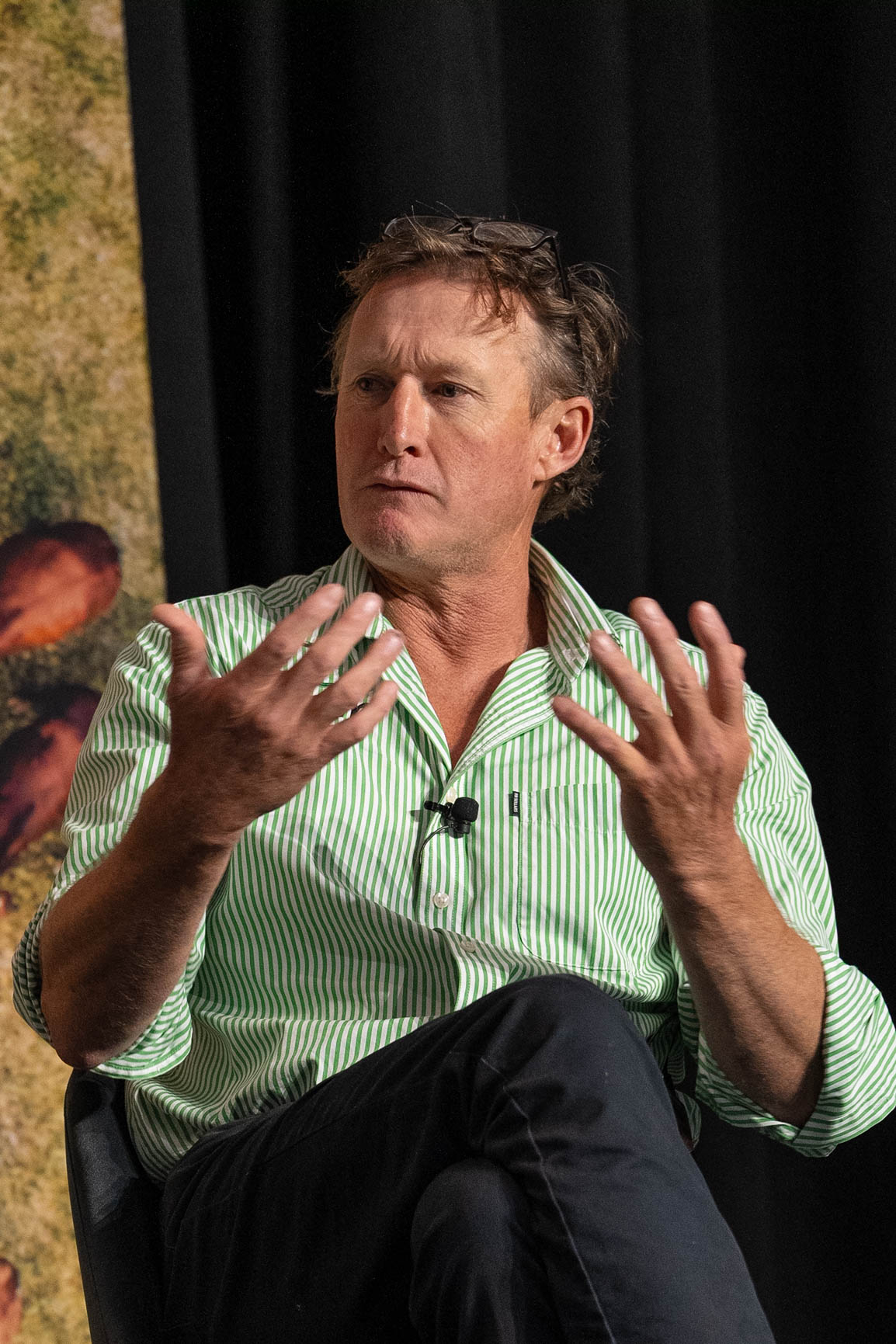
Central Western New South Wales farmer Mick Wettenhall is a Co-Founder of Loam Bio | Image: Mr Wigley
2. DO make it easy
Nitin Vaish, Business Development, Agriculture, Ginkgo Bioworks said we are getting better at predicting and assessing the functions of nature and aligning with grower’s needs.
“In addition to the massive market size, with the revolution in genomics and the building blocks of synthetic biology, the discovery and optimization of new biological products can be done more rigorously,” Nitin said.
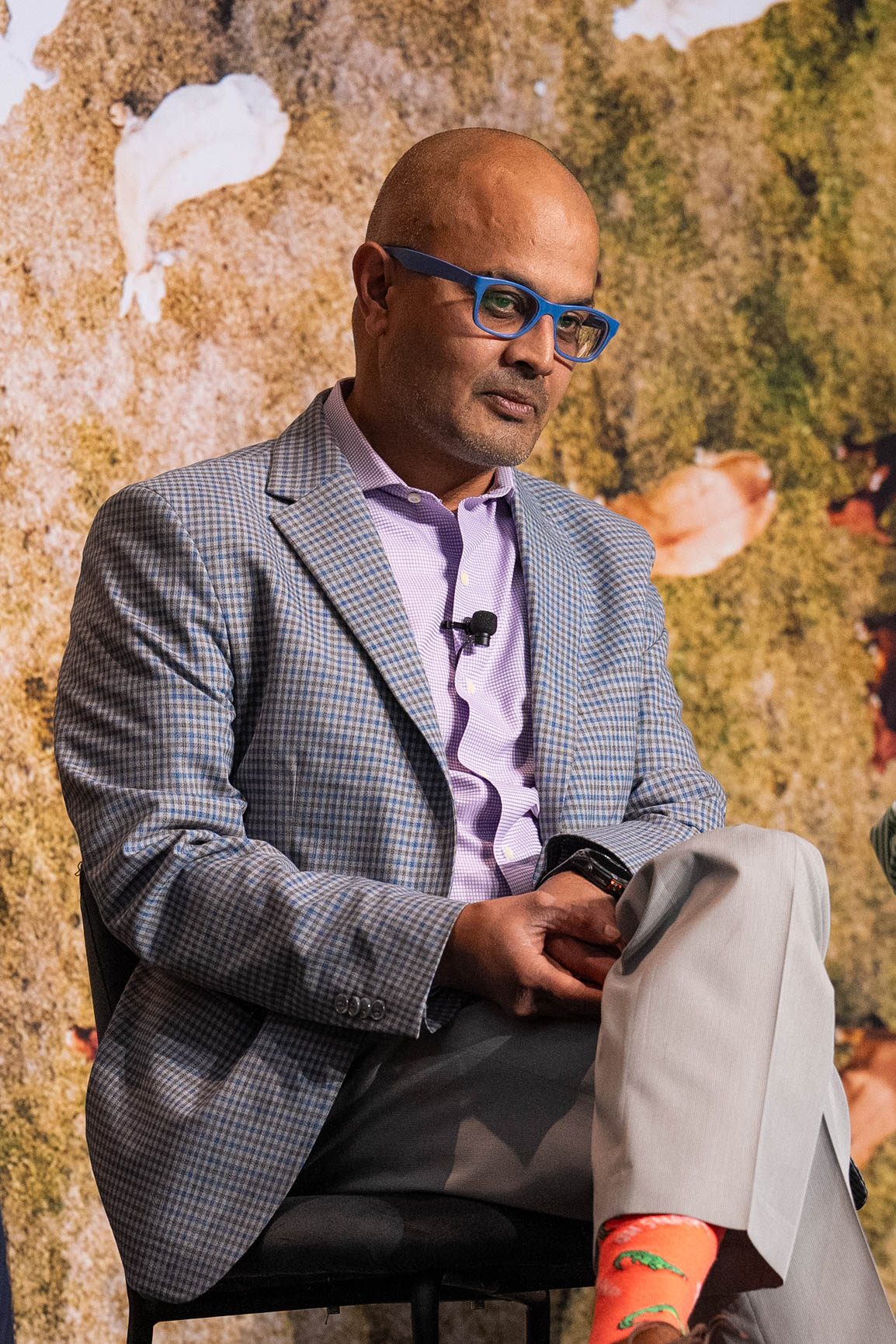
Nitin Vaish, Business Development, Agriculture, Ginkgo Bioworks | Image: Mr Wigley
“Biological products can be developed today, starting with wild type microbes, which can be further optimised through natural evolution processes; which fits in the existing regulatory framework in many geographies.”
Invasive Species Corporation Co-Founder and Executive Chair Dr Pam Marrone has spent more than 30 years focused on biological products for pest management and plant health.
She said researching the market and then making the product easy to use are the keys to increasing adoption of biologicals by farmers.
“Talk to at least 50 to 100 farmers before you develop your product to determine what the unmet needs in the market are, because if you focus on an unmet need that they have, your adoption will be faster,” Pam said.
“Secondly, farmers don’t have that much time and you can’t have them do something special just for a biological, so any company developing a product has fit it into existing practices.”
Mick wholeheartedly agrees.
“Making it easy for the for the farmer is the big thing,” he said.
“Where our success has been is by lowering that barrier to adoption for farmers and not getting in the way of their business. If they’ve got to do something that’s vastly outside what they usually do you just won’t get the adoption.”
3. DON’T give up too soon
The biggest challenge in trying anything new is sticking with it long enough to see the results.
“As farmers we’re used to the green and brown effect to assess if something is working. We spray things and it goes green, we spray things, and it goes brown, and you can see it happening right in front of your eyes,” Mick said.
“The feedback loop with biologicals is a lot more intricate, it’s longer and it’s harder to identify. You’ve got to say, ‘I’m willing to do it on this piece of land and whatever happens I know I can see the program right through’, because it’s not just one application necessarily, or one year, and therein lies the challenge.”
4. DON’T overlook the need for education
Dr Marrone said farmers need to understand the differences between traditional and biological products if they want them to succeed.
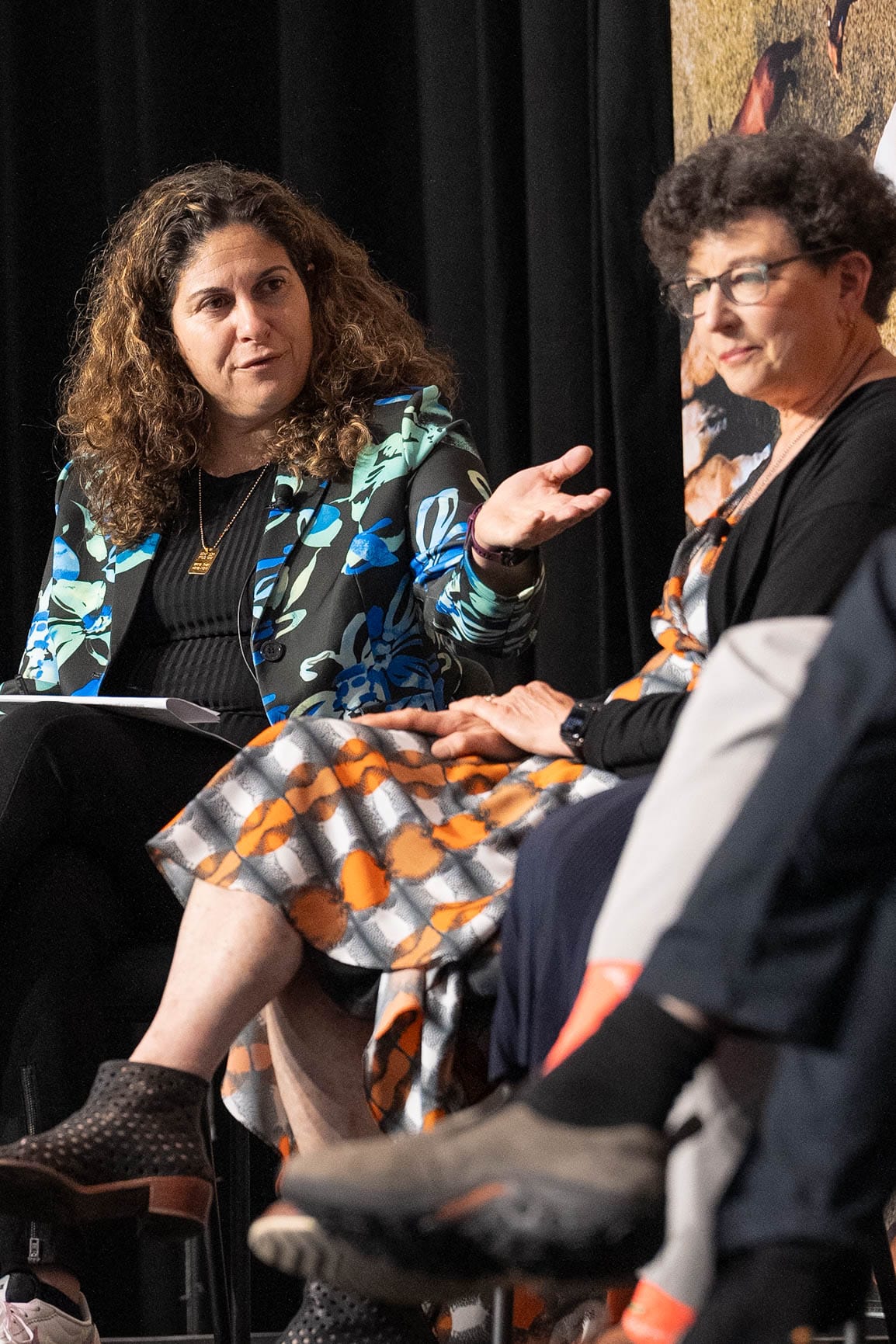
Invasive Species Corporation Co-Founder and Executive Chair Dr Pam Marrone | Image: Mr WIgley
“Biologicals have a different mode of action than synthetic chemicals, so you have to learn how to use them,” she said.
“Rather than letting the pests get up to a threshold in classical integrated pest management and knocking them down, you have to use (biologicals) much earlier before the populations build up.
“There is a perception that they don’t work as well as chemicals but that’s not true. It’s how you use them, and they’re best used in holistic systems integrated into a program.
“We keep looking for silver bullets and that’s not the way it works in nature – the education of how to use the products is really the most important thing.”
Dr Pam Marrone, Co-Founder and Executive Chair, Invasive Species Corporation; Nitin Vaish, Business Development – Agriculture, Ginkgo Bioworks; Rebecca Russell, Managing Director and Partner, Boston Consulting Group; Mick Wettenhall, Director, Weemabah Pastoral Co., and Co-founder and Head of Grower Success, Loam Bio, were part of panel discussion, ‘Biologicals: Where to from here?’ at evokeAG. 2024. The session was facilitated by Ethy Levy, Founder and CEO, Impact Innovation Israel.
Tap into more discussions here about the role of agrifood tech in driving sustainability across supply chains, news from agtech startups and updates ahead of evokeAG. 2025 in Brisbane, Queensland.
